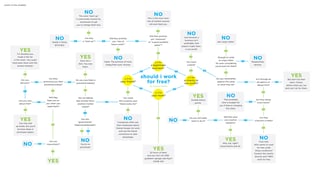I came across this article Work for Free that got me thinking.
The goal of every employer is to gain more value from workers than the firm pays out in wages; otherwise, there is no growth, no advance, and no advantage for the employer. Conversely, the goal of every employee should be to contribute more to the firm than he or she receives in wages, and thereby provide a solid rationale for receiving raises and advancement in the firm.
I don't need to tell you that the refusenik didn't last long in this job.
In contrast, here is a story from last week. My phone rang. It was the employment division of a major university. The man on the phone was inquiring about the performance of a person who did some site work on Mises.org last year. I was able to tell him about a remarkable young man who swung into action during a crisis, and how he worked three 19-hour days, three days in a row, how he learned new software with diligence, how he kept his cool, how he navigated his way with grace and expertise amidst some 80 different third-party plug-ins and databases, how he saw his way around the inevitable problems, how he assumed responsibility for the results, and much more.
What I didn't tell the interviewer was that this person did all this without asking for any payment. Did that fact influence my report on his performance? I'm not entirely sure, but the interviewer probably sensed in my voice my sense of awe toward what this person had done for the Mises Institute. The interviewer told me that he had written down 15 different questions to ask me but that I had answered them all already in the course of my monologue, and that he was thrilled to hear all these specifics.
The person was offered the job. He had done a very wise thing; he had earned a devotee for life.
The harder the economic times, the more employers need to know what they are getting when they hire someone. The job applications pour in by the buckets, all padded with degrees and made to look as impressive as possible. It's all just paper. What matters today is what a person can do for a firm. The resume becomes pro forma but not decisive under these conditions. But for a former boss or manager to rave about you to a potential employer? That's worth everything.
What do you think? Has anyone here worked for free? If so, has it benefited you in any way? Why should(nt) you work for free (presuming you have the money from other means to keep you going)? Can you share your experience?
Me, I am taking a year out of college and haven't gotten a degree yet so that's probably why most of my job applications are getting ignored. So im thinking about working for free for the experience?

